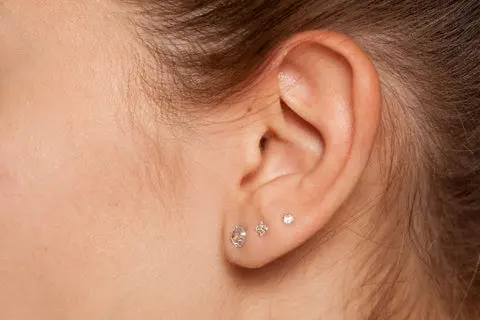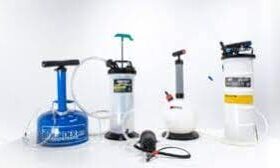Tea tree oil is often touted as a natural remedy for various skin conditions, including piercings. However, despite its popularity, tea tree oil can actually be harmful to piercings and hinder the healing process.

The potential risks of using tea tree oil on piercings
Using tea tree oil on piercings can pose several potential risks that can impede the healing process. One of the major concerns is its tendency to cause irritant reactions. Tea tree oil is highly concentrated and can be too harsh for the delicate skin around a piercing, leading to redness, itching, and inflammation.
Moreover, tea tree oil has limited effectiveness in preventing infections. While it possesses antimicrobial properties, it cannot effectively penetrate the skin or kill the bacteria within the piercing channel. This means that using tea tree oil as a disinfectant is insufficient, increasing the risk of infection.
Furthermore, tea tree oil has been shown to slow down the healing process of piercings. Its strong concentration can interfere with the natural healing mechanism, causing excessive drying, scabbing, and prolonging the overall healing time.
The harm it can cause to the healing process
Tea tree oil, despite its reputation as a natural remedy, can actually harm the healing process of piercings. Its highly concentrated nature can interfere with the delicate skin around the piercing, causing redness, itching, and inflammation.
Moreover, tea tree oil’s limited effectiveness in preventing infections is another concern. While it does possess antimicrobial properties, it is unable to effectively penetrate the skin or kill the bacteria within the piercing channel.
Furthermore, tea tree oil’s strong concentration can cause excessive drying and scabbing, which can prolong the overall healing time.
Alternative remedies for piercing aftercare
Now that we understand why tea tree oil isn’t suitable for piercing aftercare, let’s explore some alternative remedies that can effectively promote healing and prevent infection.
1. Saline Solution:
A saline solution made with a mixture of non-iodized sea salt and distilled water is a gentle and effective way to cleanse your piercing. It helps to maintain a clean environment and aids in reducing inflammation.
2. Chamomile Tea:
Chamomile tea has soothing properties that can help calm the irritated skin around your piercing. Brew a cup of chamomile tea, let it cool, and use it as a compress on your piercing for a few minutes a few times a day.
3. Mild Antibacterial Soap:
Washing your piercing with a mild antibacterial soap can help remove any dirt or bacteria from the area. Make sure to rinse thoroughly and pat dry with a clean towel.
The importance
While the alternative remedies mentioned above can be beneficial for healing and maintaining the health of your piercing, it is crucial to consult with a professional piercer or a healthcare provider for personalized aftercare advice.
Every individual’s body is unique, and what works for one person may not work for another. An experienced piercer or healthcare provider will be able to assess your specific situation, taking into consideration factors such as your skin type, the location of your piercing, and any potential allergies or sensitivities.
A professional will have up-to-date knowledge and expertise on the best aftercare practices. They can provide you with specific instructions on how to clean and care for your piercing, what products to use, and how often to perform the aftercare routine.
By seeking professional guidance, you can ensure that you are following the most effective aftercare plan for your piercing, minimizing the risk of complications and promoting optimal healing.
Conclusion
Despite its antibacterial properties, tea tree oil can have adverse effects on piercings due to its strong concentration and potential for skin irritation.
Consulting with a professional piercer or healthcare provider is essential in order to receive personalized aftercare advice that suits your unique needs. They have the knowledge and expertise to assess your specific situation and provide you with the best aftercare practices.
By seeking professional guidance, you can ensure that you are taking the necessary steps to promote optimal healing and minimize the risk of complications. Don’t hesitate to reach out to your piercer or healthcare provider for any questions or concerns you may have.










Hello!! My name is Jeanine
I love to eat, travel, and eat some more! I am married to the man of my dreams and have a beautiful little girl whose smiles can brighten anyone’s day!